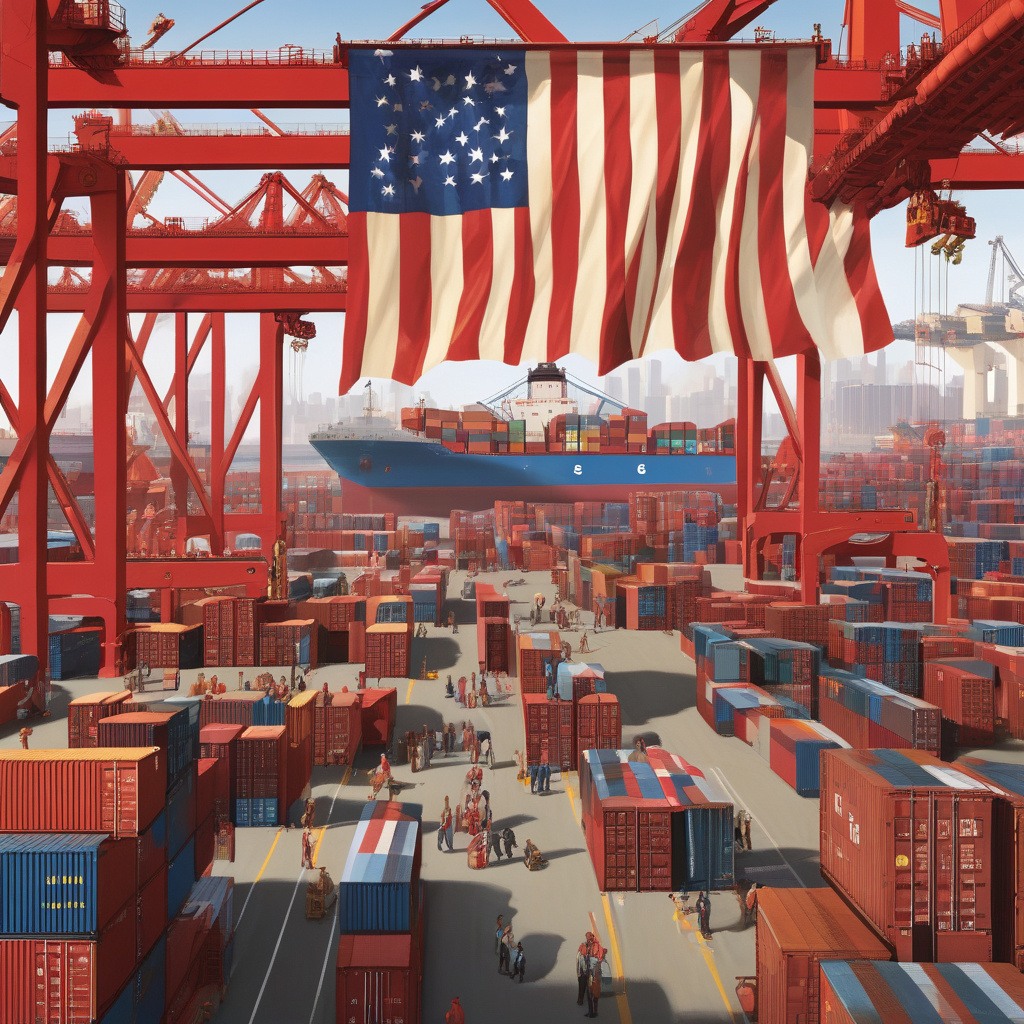Temporary Pause to Tariffs on China: A Win for Retailers
The recent agreement between the United States and China to temporarily halt reciprocal and retaliatory tariffs has been met with applause from the National Retail Federation (NRF). This move comes as a relief to the retail industry, which has been bracing itself for potential price hikes on products due to the escalating trade tensions between the two economic powerhouses.
In April, both online and offline retail sales in the U.S. saw a significant year-over-year increase. Consumers were driven by the looming threat of tariffs, expecting prices to surge in the near future. However, the temporary pause on tariffs has provided a sense of reprieve and stability to both retailers and consumers alike.
The NRF has emphasized that this agreement is a critical first step towards easing the strain on the retail sector. By averting further tariff increases, businesses can now recalibrate their strategies and pricing models without the added pressure of additional costs. This temporary truce offers a window of opportunity for retailers to reassess their supply chains, inventory management, and customer pricing.
One of the key benefits of this temporary pause is the restoration of consumer confidence. Uncertainties surrounding tariffs can lead to hesitancy among consumers, impacting their purchasing behaviors. With the assurance of stable prices for the time being, consumers are more likely to continue spending, thereby driving retail growth and economic stability.
Moreover, the NRF’s support for this initiative underscores the significance of international trade relations in the retail industry. The interconnected global supply chains necessitate a harmonious trade environment to ensure seamless operations and cost-effective sourcing. By fostering a cooperative trade relationship, retailers can mitigate risks, enhance competitiveness, and deliver value to consumers.
While the temporary pause on tariffs is indeed a positive development, it is crucial for retailers to remain vigilant and adaptable in the ever-changing landscape of international trade. Continuous monitoring of trade policies, market trends, and consumer preferences is essential to navigating uncertainties and seizing opportunities effectively.
As the retail industry continues to navigate the complexities of a globalized economy, strategic partnerships, digital innovation, and customer-centric approaches will be instrumental in driving growth and resilience. By leveraging data analytics, omnichannel strategies, and personalized marketing, retailers can not only withstand external challenges but also thrive in a dynamic marketplace.
In conclusion, the temporary halt on tariffs between the U.S. and China marks a significant milestone for the retail sector. It provides a breathing space for retailers to regroup, strategize, and focus on driving value for consumers. By embracing flexibility, innovation, and collaboration, retailers can emerge stronger from the current trade uncertainties and shape a more resilient future for the industry.
#Retailers, #Tariffs, #TradeRelations, #ConsumerConfidence, #EconomicStability
